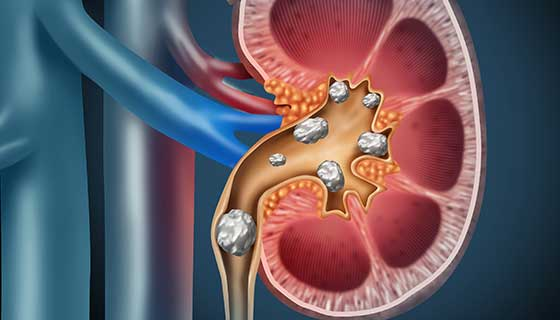
Does Zinc inhibit or promote growth of kidney stones?
Two different theories emerged, each contradicting the other.
One: Zinc stops the growth of the Calcium oxalate crystals that make up the stones; and two: It alters the surfaces of crystals which encourages further growth.
Now it can be told—both theories are correct.
Zinc slows down Calcium oxalate crystal growth and at the same time it changes the surface of the crystals, causing defects in the form of intergrowths. These abnormalities create centers for new crystals to nucleate and grow.
The formation of kidney stones is a pathological condition that has increased in frequency among patients, leading to an increased amount of suffering and steep rise in medical costs.
Though Calcium oxalate crystals are found everywhere, the most naturally abundant form of these crystals are Calcium oxalate monohydrates, the kind found in human kidney stone disease. Along with Calcium oxalate monohydrates, kidney stones are composed of various hard deposits of inorganic salts and organic compounds (e.g., proteins) crystallizing or sticking together in concentrated urine. They can be severely painful to pass through the urinary tract.
The dual role of Zinc on Calcium oxalate monohydrates was confirmed by atomic force microscopy measurements showing a unique ability of Zinc ions to alter the termination of crystal surfaces.
This is an excellent demonstration of how subtle differences in the nature of various species impacts their interaction with crystal surfaces.
 English
English Arabic
Arabic


